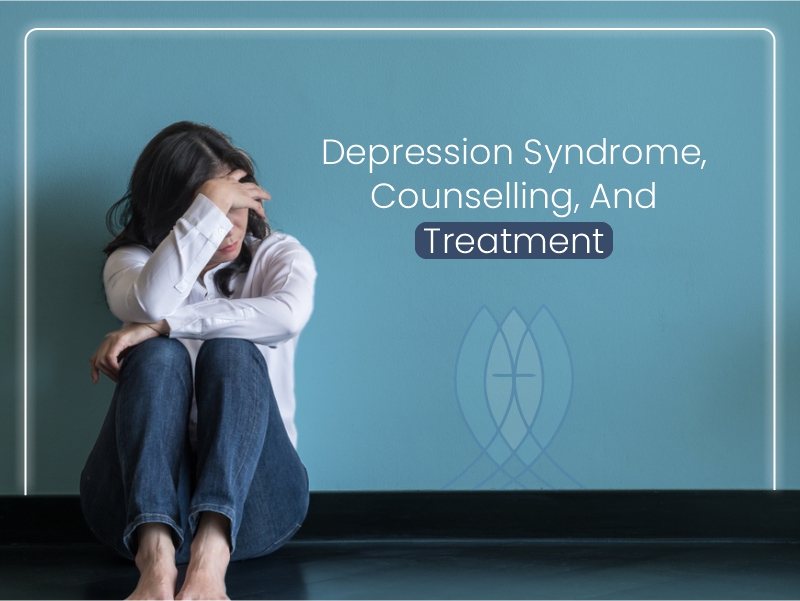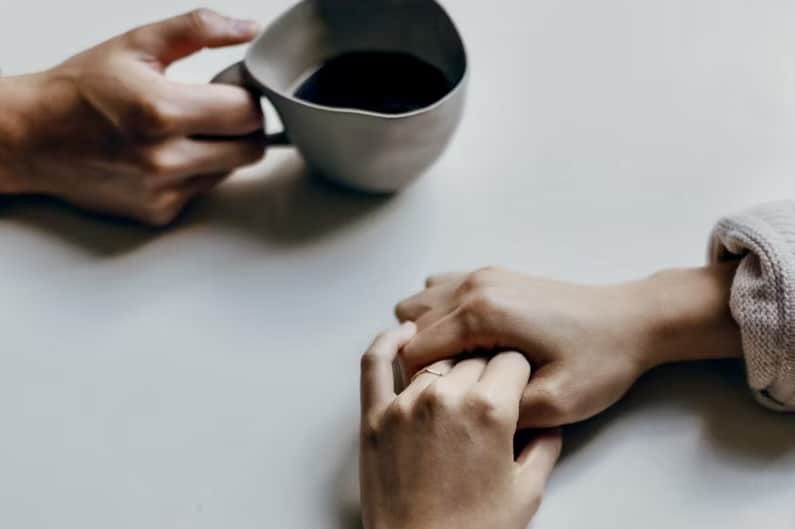Discovering Different Techniques in Counselling for Anxiousness Disorder for Long-term Adjustment
When dealing with anxiousness disorders, it's vital to discover a range of therapy strategies. Each method uses distinct understandings and tools to assist you manage your symptoms effectively. You may discover that integrating methods can produce the finest outcomes. Understanding the nuances of these strategies is key to cultivating long-term adjustment. Suppose the ideal combination could release a new degree of psychological health for you?
Recognizing Anxiousness Problems: A Short Introduction
Anxiousness conditions, which impact countless people worldwide, can considerably affect every day life. You may experience frustrating sensations of fear or fret that appear unmanageable. These feelings can bring about physical signs and symptoms like a racing heart, sweating, or perhaps lightheadedness. Typical sorts of stress and anxiety problems include generalized stress and anxiety disorder, panic problem, and social stress and anxiety problem. Each has special signs, however they all share a tendency to interrupt your regular and relationships.Understanding the origin of your anxiety is essential. It might stem from genes, brain chemistry, or life experiences. Identifying your triggers can assist you manage your reactions much better. It's important to bear in mind that you're not the only one in this battle. Many individuals face similar obstacles, and looking for help is a strong step towards sensation much better. By finding out about anxiety problems, you're currently on the course to understanding and managing your condition much more properly.
Cognitive-Behavioral Therapy: Challenging Unfavorable Idea Patterns
In Cognitive-Behavioral Therapy, you'll begin by identifying the unfavorable thought causes that contribute to your stress and anxiety. As soon as you identify these ideas, you'll service replacing them with even more positive options. With each other, you'll construct effective coping approaches to help manage your anxiety in daily situations.
Determining Adverse Idea Triggers

Acknowledging the certain triggers behind your negative thoughts can be necessary in taking care of stress and anxiety when you experience minutes of distress. Begin by focusing on circumstances that provoke sensations of fear or anxiety. Is it a jampacked space, an upcoming deadline, or a conversation with particular people? Write down these circumstances in a journal. This will certainly assist you determine patterns in your thinking. Notice physical experiences that accompany your unfavorable ideas, like a racing heart or rigidity in your breast. By pinpointing these triggers, you get understanding into what's fueling your stress and anxiety. Understanding these connections is the very first step in challenging those thoughts and ultimately reclaiming control over your psychological reactions.
Replacing Thoughts With Positives
Challenging unfavorable idea patterns is a vital action in transforming your mindset and minimizing anxiety. You might typically find yourself caught in cycles of insecurity or disastrous thinking. Instead of allowing these ideas determine your sensations, technique replacing them with positive affirmations or practical alternatives. As an example, when you think, "I can not manage this," change it to, "I can take care of obstacles one step at once." This simple modification can greatly impact your emotion. Consistently identifying and responding to these adverse thoughts aids create a healthier internal discussion. Keep in mind, it requires time and effort, but consistently practicing this technique can result in long lasting adjustment, empowering you to face anxiety with renewed self-confidence and durability.
Structure Coping Methods Together
Replacing negative thoughts is just the start of managing anxiousness properly. To produce long-term adjustment, you require to construct coping strategies that empower you. Cognitive-Behavioral Therapy (CBT) aids you determine and challenge those unhelpful thought patterns. With each other, you and your counselor can explore how these ideas influence your sensations and behaviors.Start by establishing functional methods, like journaling or mindfulness exercises, that permit you to confront stress and anxiety head-on. When you face your anxieties slowly, you'll learn to respond in a different way.

Mindfulness and Acceptance-Based Approaches: Cultivating Present-Moment Understanding
As you navigate the complexities of anxiousness, integrating mindfulness and acceptance-based approaches can substantially boost your ability to grow present-moment understanding. By concentrating on the right here and currently, you'll discover that you can observe your ideas and feelings without judgment (Counseling services for anxiety). This technique assists you recognize your stress and anxiety without really feeling bewildered by it.Engaging in mindfulness exercises, such as deep breathing, body scans, or led meditations, enables you to ground on your own in your current experience. Acceptance-based methods encourage you to welcome your feelings instead of combat against them. When you accept your sensations, they shed their power over you.Incorporating these practices into your everyday routine can transform just how you reply to stress and anxiety. You'll create resilience and find out to navigate difficult circumstances with greater convenience. Ultimately, cultivating present-moment recognition lays the structure for long lasting modification, equipping you to lead a more meeting life
Direct Exposure Therapy: Facing Fears Slowly
Exposure treatment aids you face your worries in a gradual way, making it much less frustrating. You'll find out methods to encounter anxiety-provoking scenarios detailed, while also developing coping methods to handle your responses. This approach equips you to take control and reduce anxiety over time.
Steady Direct Exposure Strategies

When facing anxiousness, gradually challenging your fears can be an effective way to gain back control. This technique, recognized as progressive direct exposure, involves slowly exposing on your own to the situations or things that cause your anxiety. Start with much less challenging situations and progressively work your means approximately more tough ones. If you're scared of public talking, you could start by talking in front of a mirror, then progress to sharing thoughts with a friend, and at some point resolve a little group. Each step helps desensitize you to the concern, building your self-confidence gradually. Keep in mind, it's important to rate yourself and celebrate tiny success as you relocate via this process, strengthening your capability to manage anxiousness successfully.
Structure Coping Approaches
Structure efficient coping strategies is vital for handling anxiousness, particularly as you confront your concerns progressively - Counseling services for anxiety. One effective method is direct exposure therapy, where you begin by facing your concerns in a controlled fashion. Begin with less frightening situations and gradually function your way up to more challenging situations. This steady direct exposure aids desensitize you to anxiousness causes, making them much less overwhelming.Incorporate leisure techniques, such as deep breathing or mindfulness, to soothe your mind during exposure. Track your progress, commemorating small triumphes along the method to improve your self-confidence. Bear in mind, it's fine to take your time; the objective isn't perfection but consistent renovation. By building these strategies, you'll equip on your own to browse anxiety and accept life more totally
Psychodynamic Therapy: Discovering Source of Anxiety
Psychodynamic therapy discovers the subconscious mind, exposing the source of your anxiety. By analyzing your ideas, sensations, and previous experiences, this technique aids you uncover underlying disputes and unsolved problems that might add to your current anxiety. You'll collaborate with a specialist to explore youth experiences, relationships, and emotional patterns that form your responses today.As you acquire understanding into these much deeper layers of your psyche, you'll start to identify how previous occasions influence your existing behavior. This understanding can cause catharsis, allowing you to process feelings you may have suppressed.Through the healing connection, you can additionally recognize protection devices that might have established in time, supplying a more clear path to change. Ultimately, psychodynamic treatment outfits you website with the tools to resolve your anxiousness at its core, advertising long-term improvement in your psychological health.
All Natural and integrative Techniques: Integrating Methods for Greater Efficacy
Incorporating numerous healing methods can enhance your trip towards managing anxiousness better. By combining components from cognitive-behavioral treatment, mindfulness methods, and alternative strategies, you can create an individualized technique that resolves your unique requirements. As an example, you may utilize cognitive-behavioral strategies to challenge adverse idea patterns while integrating mindfulness exercises to ground on your own in the existing moment.Additionally, checking out alternative practices such as yoga or reflection can advertise leisure and decrease anxiety signs. This mix allows you to create higher self-awareness and resilience.Experimenting with these diverse methods can aid you uncover what reverberates most with you. Remember, it's regarding locating a synergy that functions, instead of adhering to a solitary strategy. This integrative technique not just uses prompt relief but additionally cultivates lasting skills for managing anxiety, empowering you to reclaim control over your life.
The Duty of Assistance Equipments: Building Resilience Via Connection
While it may seem that managing anxiety is a singular journey, having a strong support system can play a crucial duty in your strength. Surrounding on your own with empathetic friends, family, or support groups develops a safe area where you can openly share your feelings and experiences. You remind yourself that you're not alone in this struggle.These partnerships supply inspiration and can give useful coping techniques that have functioned for others when you attach with others. It's likewise an opportunity to obtain point of view; close friends can assist you see circumstances in different ways, reducing feelings of isolation.Moreover, psychological assistance promotes a sense of belonging, which can considerably reduce anxiousness signs and symptoms. By leaning on your support group, you can develop strength and deal with obstacles better. Bear in mind, reaching out for help signifies strength, and it can make all the difference in your journey toward handling anxiety.
Frequently Asked Concerns
What Are the Typical Signs And Symptoms of Anxiousness Disorders?
You might experience uneasyness, exhaustion, trouble focusing, impatience, muscle tension, and sleep disturbances. Physical symptoms can consist of quick heart beat, sweating, and shivering. Recognizing these signs early can help you seek proper assistance and therapy.
The Length Of Time Does Treatment Usually Last for Anxiousness Problems?
Treatment for stress and anxiety conditions commonly lasts anywhere from a couple of weeks to several months. It really depends on your individual needs, progress, and the methods your therapist uses to help you manage your anxiousness effectively.
Can Medication Be Made Use Of Alongside Treatment for Anxiousness?
Yes, medicine can absolutely be utilized together with therapy for anxiousness. Incorporating both techniques typically improves treatment performance, assisting you manage symptoms while exploring underlying issues via therapy (Counseling services for anxiety). Constantly consult your doctor for personalized guidance
Are There Self-Help Methods for Taking Care Of Anxiety?
Yes, there are numerous self-help approaches for managing anxiety. You can practice mindfulness, participate in routine workout, maintain a well balanced diet, develop a routine, and make use of deep breathing techniques to help minimize anxiety signs effectively.
Just how Do I Know if I Required Professional Help for Anxiety?
